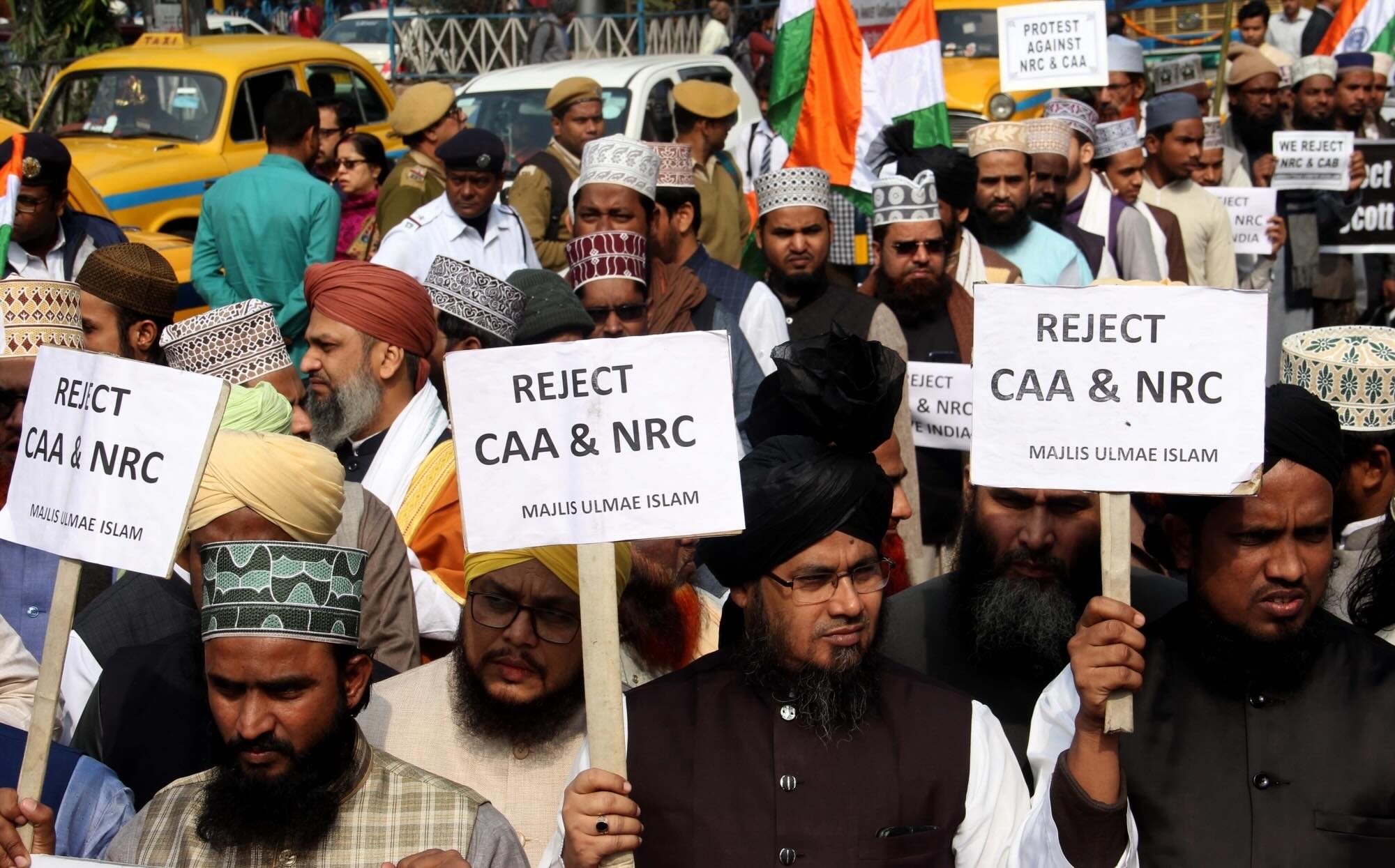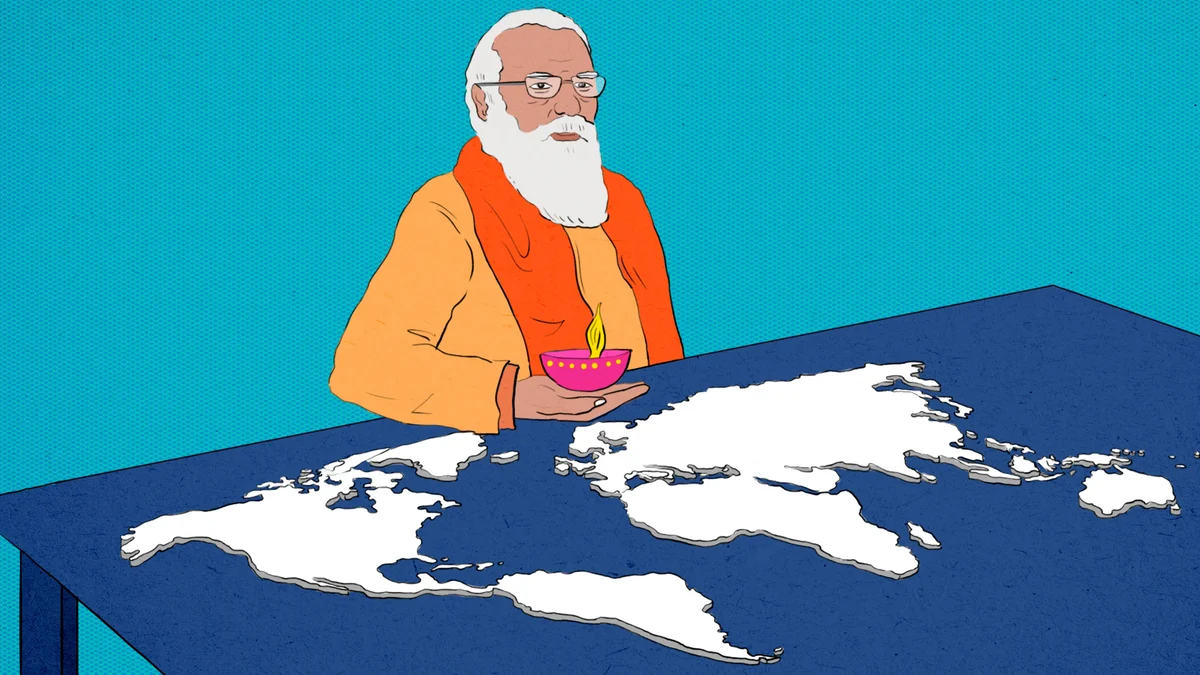In November 2019, the Parliament of India passed the Citizenship (Amendment) Act, 2019 (CAA) to provide an accelerated pathway to Indian citizenship for persecuted religious minorities like Hindus, Sikhs, Buddhists, Jains, Parsis and Christians from Pakistan, Bangladesh and Afghanistan. Four long years after the parliament passed this act, Union Home Minister Amit Shah on 11 March 2024 notified the rules of its implementation, days before the announcement of the schedule for the Lok Sabha elections. Thus, the CAA aims to protect those individuals who have sought refuge in India due to religious persecution in Bangladesh, Pakistan, and Afghanistan can seek fast-track to gain Indian citizenship if they came on or before 31st December 2014.
The Centre led by Bharatiya Janata Party (BJP) along with Prime Minister Narendra Modi have received praises from their allies and staunch supporters, the Congress and the other opposition parties such as Dravida Munnetra Kazhagam (DMK) led by Chief Minister M. K. Stalin and Communist Party of India (Marxist) led by Chief Minister Pinarayi Vijayan in Tamil Nadu and Kerala respectively have criticised the move, alleging it was done to polarise the elections, especially in West Bengal and Assam.
Even smaller political parties such as Kamal Hassan’s Makkal Needhi Maiam (MNM) and actor Vijay, who recently launched his political party Tamizhaga Vetri Kazhagam (TVK), on Tuesday strongly opposed the CAA and its implementation. The actors turned politicians alleged that the Centre was trying to divide people and destroy harmony before the Lok Sabha elections through implementation of CAA. In many regions, India is currently witnessing fierce anti-CAA protests mainly led by islamic communities, especially in Assam where protesters have observed ‘black day‘ by opposing the Centre’s decision to implement alleged religiously discriminating citizenship act.
The Citizenship (Amendment) Act, 2019 is basically a foreign policy instrument and has nothing to do with domestic affairs of India. Thus, Indians protesting for an act that is basically not applicable to them as they are already Indian citizens proves high illiteracy among the country’s population regarding foreign affairs. The Centre has clearly stated that implement of act does not affect Indian citizens including its Muslim population. The act is passed for granting citizenship to those persecuted religious minorities coming from Pakistan, Afghanistan and Bangladesh. Muslims are excluded from the act because Islam is either the state religion or majority population in those three countries. Thus, the Indian policymakers of CAA have considered that it is improbable for Muslims to be persecuted in these countries since they form as a majority population.
Many countries such as the United States and international organisations such as the United Nations (UN) Office of the High Commissioner for Human Rights (OHCHR) have opposed India’s CAA labelling it discriminatory against Muslims as they are excluded from the list. To those countries opposing India’s CAA, why you haven’t still opposed persecution of the religious minorities such as Hindus, Sikhs, Jains and so on in these Islamic Republics such as Pakistan, Afghanistan and Muslim majority countries like Bangladesh? OHCHR and the same Islamic Republics mentioned above is remaining silent on the issue of genocide of Uyghur muslims by their immediate neighbour China, yet everyone bats an eye upon CAA’s implementation in India.
Are we witnessing any public or mass protests in India by Islamic based organisations and (Indian) Muslims voicing out their concerns for persecution of Uyghurs by China? I am deeply concerned that despite the advent of technology still people, especially the youth of India, remain uneducated about foreign affairs. Consequently, they are prone to easily falling for misinformation. If the CAA is discriminatory against Muslims, then it should be those Muslims from countries like Pakistan, Afghanistan and Bangladesh who must be protesting against this act.
Nevertheless, the Government of India (GoI) has stated that the CAA will not affect Indian citizens including its Muslim population. The Citizenship (Amendment) Act, 2019 is a revision by adding additional clauses to the original Indian Citizenship Act of 1955, whereby all its clauses remain in effect, implying that any foreign national, regardless of religion, can obtain Indian citizenship provided they fulfil the eligibility criteria as stated in the act. Despite of clarity why do Muslims in India are protesting?
Why Muslims in India are Protesting?
All the views and opinions expressed are those of the author. Image Credit – Weekly Voice.
About the Author
Anirudh Phadke is the Founder and Editor-in-Chief of The Viyug. He is currently serving as a Member of the Board of Studies (BoS) for the Department of Defence and Strategic Studies at Guru Nanak College (Autonomous). He holds a Master of Science (Strategic Studies) along with a certificate in Terrorism Studies from S. Rajaratnam School of International Studies (RSIS) at Nanyang Technological University (NTU). He previously worked for International Criminal Police Organization (INTERPOL).



